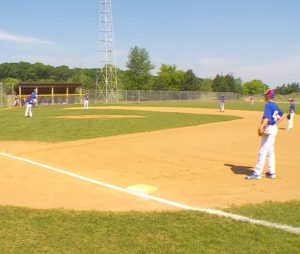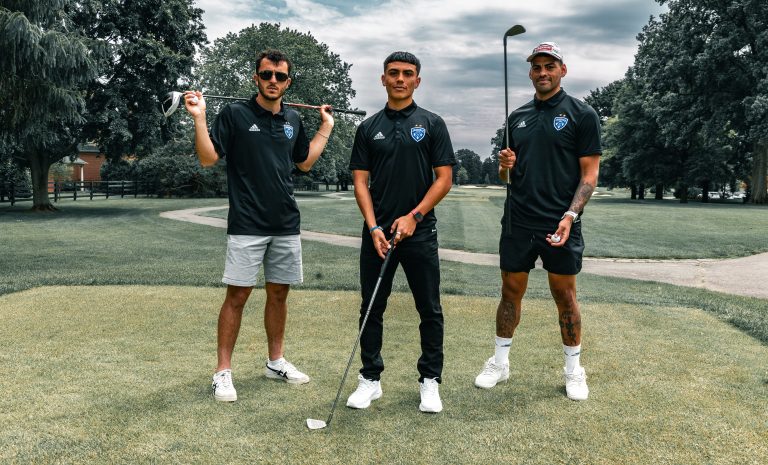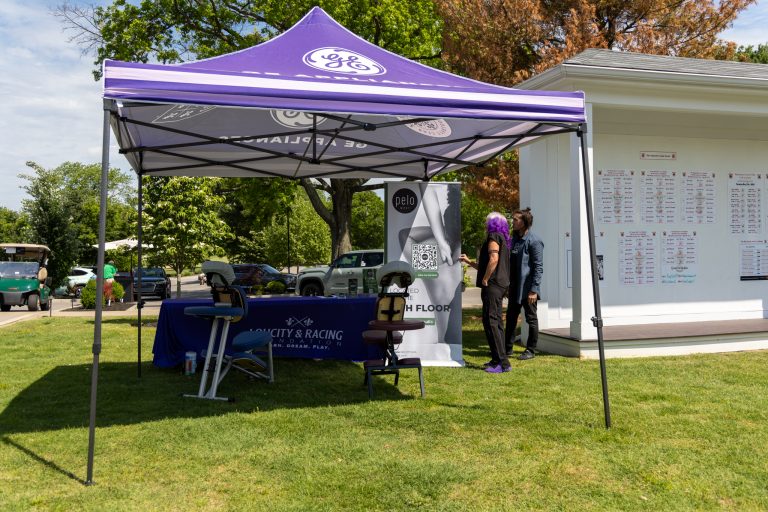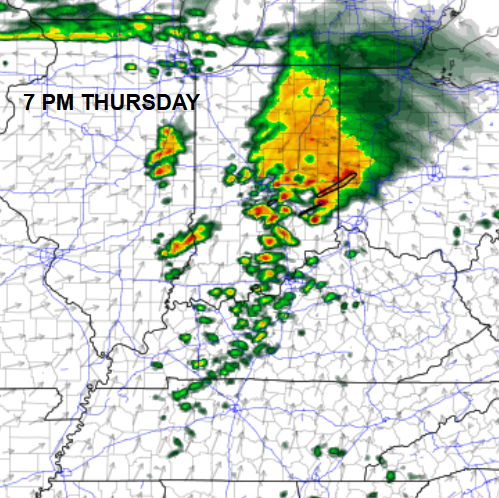
Travel tournaments are increasingly dominating
youth baseball. It provides great opportunities to
play a lot of games around the country. But is it
good for the kids themselves?
Youth baseball.
For more than a century, it was the summer
game, a sunshine outlet for American kids. Their
national pastime.
Whether it was neighborhood pickup games
in the park or a more organized trip through
one of the local Little League programs, it was
a fun leisure-time sport for teens and pre-teens
to look forward to once school was out. It was as
informal, unstructured and relaxed as their long
summer days were.
That is changing. And not everyone believes
the change is a good one.
But some do, too.
Competition, which runs through every channel
of our lives, leads to elite selection – the best
movies, biggest-selling songs, winning politicians,
highest batting averages, most popular kids.
So, it was inevitable that it would creep into
summer baseball, as well. Someone had to pitch;
someone had to start while someone else sat the
bench; someone had to play shortstop while
someone else was shunted off to right field. And,
ultimately, all-star teams were formed that traveled
around the town or to other towns playing other
all-star teams.
“Travel” became the key definer. It separated
the best of the best from the old come-one-comeall
afternoon game in the neighborhood park.
Today, the concept of travel baseball has
exploded, from traveling around the immediate
area to traveling around the country. There are
tournaments nearly every weekend, in which
teams might play six games in the space of three
days. That’s lots of baseball against high-level
competition. In a country where the feeling is
baseball is slipping as a youth activity – to football,
to basketball, to soccer, to video games – travel
ball juices up the interest level by the travel,
competition and opportunities it offers.
But Adam Kleinert wonders if it’s having exactly
the opposite effect. Kleinert, a graphic designer
who owns Hatch Design in Henryville, is the
father of two sons and two daughters; baseball
coordinator at the local youth park; and baseball
coach at Henryville Junior High School. He sees
travel baseball potentially diminishing interest in
youth baseball because it’s causing the summer
rec leagues to disappear.
“Because of the entry fees and travel demands,
travel ball has become something for the affluent
families and the single-child families,” said
Kleinert, who turned down travel ball for his
older son, Eli (now 13), partly because he felt it
wasn’t fair to his three other children. “A lot of
kids, left off of travel teams and with no other
opportunities to play organized baseball in the
summer, are turning to other sports.”
Kleinert said a friend pays around $10,000 for
his son’s travel ball activity. That includes the entry
fees, of course, but also the private lessons and
expensive equipment – because, said Kleinert,
parents insist on providing only the very best bats
and gloves for their sons. (He notes, wryly, that
in the Dominican Republic kids play the game
using hand-me-downs and makeshift equipment.)
And for what? For those who play, the immediate
prize for winning one of the tournaments is a
trophy.
The trophy is a nice prize, too, for those who
run the teams – mainly because it allows them
to recruit other good players, not unlike the way
Alabama brings the best high school football
players to Tuscaloosa. That recruiting is profitable
in travel baseball because of the money the
organizers make on the membership fees they
charge – as much as $1,500 to $2,000 per player’s
family. If they have several teams in a variety of
age groups, that loose change becomes a sizable
profit for them.
The prize for the kids (and perhaps even more
so for their parents) is a chance to perform in front
of the college coaches and professional scouts
who come out to the tournaments and sit in the
stands. That means scholarships, pro contracts
major league salaries, free-agent signing bonuses,
endorsements, shoe deals, glove deals, book deals.
Mike Trout of the Los Angeles Angels earns
more than $34 million a year – and that’s just his
salary. Little wonder parents want their kids to
impress the scouts and coaches.
One of those college coaches whose attention
is sought by travel players and their parents is
Larry Owens, baseball coach of the Bellarmine
University Knights. So, he must love the idea of
these tournaments, in which he’s able to see and
assess promising athletes from all over the country.
Not so much.
“Yes, it gives kids the opportunity to play a
lot of baseball and to travel around the country,
and that’s a good thing,” Owens said. “But here’s
my gripe. When these kids show up here (at
Bellarmine), we’re having to teach them things
we shouldn’t be having to teach: how to play the
game! It’s little things they should know by the
time they get here: cutoffs, relays, rundowns,
fundamentals that are not getting taught at the
youth level because they don’t have time to do it.”
Why not?
Because, Owens said, “the tournaments are
set up only to play games – as many as they can
pack into a three-or-four-day weekend. So, kids
just play games, they don’t practice, they don’t
learn, they don’t develop.”
Amazingly, he said, “When I was coaching in
the minor leagues (he was a pitching coach in
the Chicago White Sox organization), those kids
didn’t know the fine points of the game, either.”
And that’s just for the kids who get that far.
Many more have been left on the side of the
road because they were forced to pitch too many
innings in these tournaments, or to throw too
hard, and they blew out their arms.
“In too many cases, these coaches just want to
win, so they’ll pitch their best kid over and over,”
Owens said, “unless the tournament has limits
on how many innings a kid can pitch. And the kid
wants to open it up and throw hard because he
thinks that’s what the scouts in the stands want
to see. It’s too much for young arms.”
Nor is the problem just about preserving arms.
It’s also growing up and maturing off the diamond.
Ben Reel, the baseball coach at Indiana
University Southeast, would like to see youth
sports be more of a training ground for life,
“teaching you all the different facet sports can
teach – patience, discipline, commitment, hard
work, everyday habits.
“My objection to travel ball is its priorities,”
said the successful coach of IUS’s championship
program. “Travel baseball is built around playing
the game, not around learning the game. Kids
don’t want to practice, or prepare, or get coached.
“They just want to go hit in the cage and start
the game. It’s ‘The more games we play, the better
we’re gonna get – right?’ But the game itself should
only be the culmination of all that preparation.”
What disappoints Reel is that travel can be
positive in providing all the opportunities to
play and develop. “With travel ball, kids just get
the chance to play more – maybe as much as 150
games a year.”
But they don’t practice. “Practice is more than
just taking three rounds in the cage before the
game, or a half-hour of infield,” said Reel. “Practice
is understanding baseball and how it works.
Baseball is a thinking man’s sport – strategies,
nuances, situational approaches. On every pitch,
there are so many things happening, so many
different ways to handle whatever happens next.
And so many rules kids have to be aware of.”
In travel ball, he said, “it’s ‘told’ versus ‘taught.’
I often find myself spending a lot of time teaching
my players the rules. And they’re in college! The
game’s a lot more than having a good swing.”
It’s a theme that resonates throughout the
coaching fraternity, at all levels. Ricky Romans,
coach at Charlestown High School, agreed that
“travel baseball had to be more about learning,
instruction and teaching.
“Kids get so wrapped up about going out to
play in tournaments, and win tournaments,” he
said, “that they’re missing the ultimate objective:
how to play the game.”
Romans said he can see one benefit of travel
ball: playing against better competition. “But
when the parents see it as a better opportunity
to put their sons on this specific team, with its
specific reputation, to improve the chance of a
college scholarship, that’s where I get frustrated.”
He reasserts the complaint that the kids don’t
get proper preparation. “They can go to all these
batting instructors and pitching gurus, but when
they get on the field, do they know how to play
the game? Do they know what to do when the
ball’s put in play?
“It’s frustrating when a kid gets to us and he
doesn’t even know how to hold a ball!”
So, will it change? Or is travel ball slowly
eliminating the summertime Little League
programs, American Legion ball and pickup
games among friends?
Adam Kleinert offers a refreshing possibility.
Because participation in travel ball often seems
to be something the parents want rather than the
players, Kleinert wonders whether that’s a cyclical
thing that will take a 180-degree turn in the future.
“Today’s kids give up their summers for travel
ball, at least partly because their fathers are
pushing them,” he said. “So, I wonder if these
kids, when they grow up and become fathers,
will say, on behalf of their sons, ‘Let him relax
and do what he chooses. Let him go to the park
and play ball with his friends if he wants. It’s
summertime!’ ”
“ it’s ‘told’ versus
‘taught.’ I often find
myself spending
a lot of time teaching
my players the rules.
And they’re in college!
The game’s a lot more
than having a
good swing.”
BEN REEL
HEAD Baseball coach
Indiana University Southeast





















